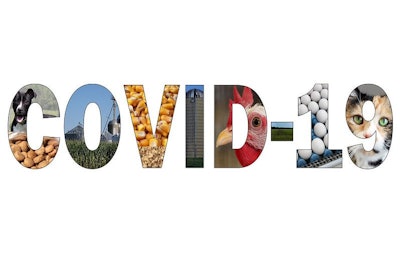
COVID-19 has disrupted many chicken consumer trends, accelerating some while slowing others. How has the pandemic affected the growing interest in sustainability?
Demand for sustainable food
Sustainability has been a trendy word with consumers for more than a decade. Before the pandemic, consumers were most concerned with food and plastic packaging waste.
Sustainably-marketed products represented more than 54% of total CPG market growth during the time period 2015 to 2019.
“We have to recognize the power of sustainability, not just in the market share but in the contribution to growth,” said Larry Levin, executive vice president of market and shopper insights at IRI.
Many consumers now define sustainability as encompassing both environmental and social factors that include minimizing negative environmental impact, commitment to renewable energy, reducing waste, minimizing exploitation of natural resources, minimizing carbon footprint, coming together as a community for the greater good, working in ways that benefit society at large, reducing climate change, protecting human rights and reducing poverty.
“Coming together for the good of the community and organizations working for the benefit of society, those numbers have grown significantly in a year,” Levin said. “I think it’s a real feather in the hats of the U.S. population that also is viewed to be a part of the sustainability culture.”
Millennials, higher incomes and education levels and those living in urban areas are more apt to purchase sustainably-marketed products.
How has COVID-19 affected sustainability?
This spring, consumer behavior changed rapidly as people reacted to the spread of COVID-19 and the resulting stay-at-home orders. Shoppers flocked to retail stores, emptying shelves and stocking pantries.
Despite a high number of product shortages, many consumers still prioritized sustainably-marketed products, according to a new report from IRI and the NYU Stern Center for Sustainable Business.
The report examined CPG across 36 categories in order to gain a better understanding of the role sustainability plays in sales performance.
Dollar sales of sustainably-marketed products rose 56% during the week that ended March 15, the same time period that conventional CPG sales also peaked. Experts estimate that products carrying a sustainability claim captured 17% of market share during the first half of 2020.
“Sustainably-marketed products have really been driving growth. They haven’t been affected by COVID-19. In fact, they’ve actually grown,” said Randi Kronthal-Sacco, a Senior Scholar at the NYU Stern Center for Sustainable Business.
View our continuing coverage of the coronavirus/COVID-19 pandemic.
Like what you just read? Sign up now for free to receive the Poultry Future Newsletter

















